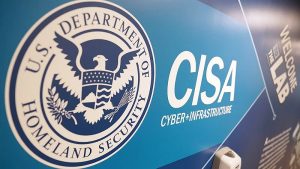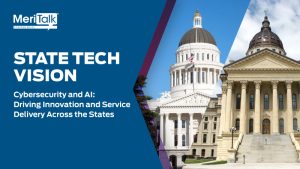A Minnesota-based edtech company has released a free professional development resource for teachers in response to the data released earlier this month indicating that math and reading levels have dropped in K-12 students.
Texas A&M University President M. Katherine Banks announced earlier this week a new cybersecurity institute to help drive cybersecurity research and innovation at the university.
Baltimore Mayor Brandon Scott announced he is allocating $3.2 million of American Rescue Plan Act (ARPA) funds from the Mayor’s Office of Recovery Programs (MORP) towards modernizing government services and improving service performance and equity.
The University of South Carolina has partnered with Verizon to launch a new 5G Innovation Experience Hub (IEH) that will bring 5G to students and faculty to work together to expand on the uses of 5G in manufacturing, healthcare, and civil infrastructure as well as other fields. Students and faculty will be allowed to work […]
Online students’ views of remote education are at an all-time high post-pandemic. According to a report published this month, 94 percent of students hold positive views of online learning – up eight percent from the 2019 survey.
Shonte Eldridge, formerly Deputy Chief of Operations for the City of Baltimore, and now Senior Director of State and Local Government Strategy and Solutions at DocuSign, knows a thing or three about what it takes to harness technology to improve government processes.
The Department of Homeland Security (DHS) has announced a first-of-its-kind cybersecurity grant program specifically to support state and local governments (SLGs) across the country.
The grant program that is offering state and local governments $500 million for projects that will utilize smart technologies to improve transportation will begin the awarding process this month.
The Federal government’s Joint Ransomware Task Force (JRTF) kicked off its inaugural meeting with a discussion of new initiatives to collaborate with state, local, tribal, and territorial entities to protect against ransomware intrusions and disrupt malicious actors, according to a September 14 press release from the Cybersecurity and Infrastructure Security Agency (CISA).
State government CIOs are set to explain the latest strategies and tactics for automating government to improve service delivery and cybersecurity at MeriTalk’s State Tech Vision virtual event on September 27.
Archives
- June 2025 (1)
- December 2024 (1)
- November 2024 (1)
- October 2024 (1)
- September 2024 (1)
- August 2024 (1)
- July 2024 (1)
- June 2024 (1)
- May 2024 (1)
- April 2024 (1)
- March 2024 (1)
- February 2024 (1)
- January 2024 (1)
- December 2023 (1)
- November 2023 (1)
- October 2023 (1)
- September 2023 (1)
- August 2023 (1)
- July 2023 (1)
- June 2023 (1)
- May 2023 (1)
- April 2023 (1)
- March 2023 (1)
- February 2023 (1)
- January 2023 (1)
- December 2021 (1)
- October 2021 (1)
- June 2021 (1)
- May 2021 (2)
- April 2021 (2)
- March 2021 (4)
- February 2021 (1)
- February 2020 (1)
- October 2019 (2)
- September 2019 (3)
- August 2019 (1)
- July 2019 (2)
- December 2018 (1)
- February 2018 (1)
- September 2017 (3)
- November 2016 (2)
- October 2016 (3)
- September 2016 (1)
- April 2016 (1)









